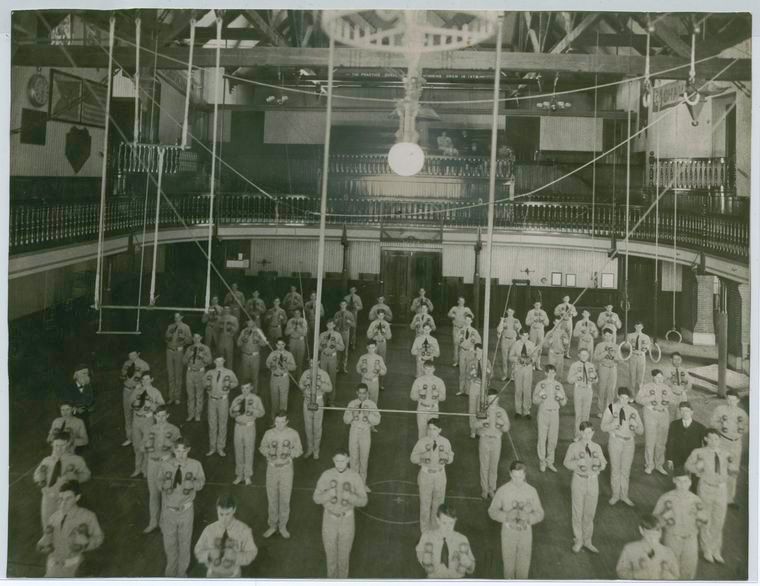 |
| Via the NYPL Digital Collections |
Perhaps it's the initial giddiness of these first two weeks back in the old place (although the actual gym moved down the block, but it's still the same chain as before). The sheer happiness of finding fully equipped weight rooms, working squat racks, TRX bands, a decent amount of working cardio machines and even the semblance of regular cleaning so there's not a patina of mystery stains after using any stretching/abs/floor areas. Maybe that will wear off in a bit, but for now I can see the difference in my workout already. And that has had a positive effect on my food intake, as well.
Of course, there are a few of the regular flies in the health ointment. That huge cabinet of supplements still stands near the main entrance and the hard sell has begun. My last trainer had a reflex flinch every time we passed by that cabinet after our first session when I ripped him a new one and said if he ever tried to sell me one pill, our sessions were over. Harsh? Yes, but it worked!
But now the push is back. They even offered a welcome back goodie bag of the stuff (I declined).
If you're running a place that pushes exercise and even nutrition as hard work (no judgements, and fun, but hard work) , why are you also then selling this "easy boost"? (It's rhetorical, I know why.)
I know this is a business model. I know this is a way to make some extra funds. But I see it as a mixed message. And yet, it's not like it's the only place trying to sell us a "cheating way to win."
I get sent lots of library links, cute tattoo videos, and of course, many links about nutrition and weight loss from a variety of my friends. Most of these are out on the usual social media memes, so I often receive them again and again.
And then Dr. Oz happened this past week. So I got a loooooot of links about it.
While I'm not surprised at the results of the hearing or the backlash around it, it does raise the question: If everyone supposedly thought Dr. Oz was a quack about these supplements, why did he still sell so many of them? My "professionals-of-another-degree-mother," the Registered Dietitians, have been weighing in on Oz's claims for quite some time, a lot of it critical towards the man. (Although there are some who use his show as their own PR sounding board). You think having some credential might be taken into account.
Yet we still all want to believe that something will be a "miracle," especially when it comes to our health and weight. One study a few years back showed that the majority of people surveyed did believe that dietary supplements would help in obesity. The numbers were higher for people who were overweight or obese. Yet results, especially those from evidence-based research, show that the efficacy and safety of these supplements is still unknown, and even the ones from "natural ingredients" have not been shown in any positive results of dieting individuals.
And these are often the same people who "eat clean" or deny certain basic food groups. They'll still take a mystery concoction that is "magic"? Is it ethical to promise a miracle, especially if you have a few initials after your name and a global audience?
There's nothing wrong with having faith that you can achieve whatever you want for your body in terms of being healthier. But I'd rather do it on my own belief that "mystery miracles" are not part of the equation.
 |
| via The Smithsonian Collection |
References:
Laddu, Deepika, Caitlin Dow, Melanie Hingle, Cynthia Thomson, and Scott Going. “A Review of Evidence-Based Strategies to Treat Obesity in Adults.” Nutrition in Clinical Practice 26, no. 5 (October 1, 2011): 512–25. doi:10.1177/0884533611418335.
Pillitteri, Janine L., Saul Shiffman, Jeffrey M. Rohay, Andrea M. Harkins, Steven L. Burton, and Thomas A. Wadden. “Use of Dietary Supplements for Weight Loss in the United States: Results of a National Survey.” Obesity 16, no. 4 (April 1, 2008): 790–96. doi:10.1038/oby.2007.136.




